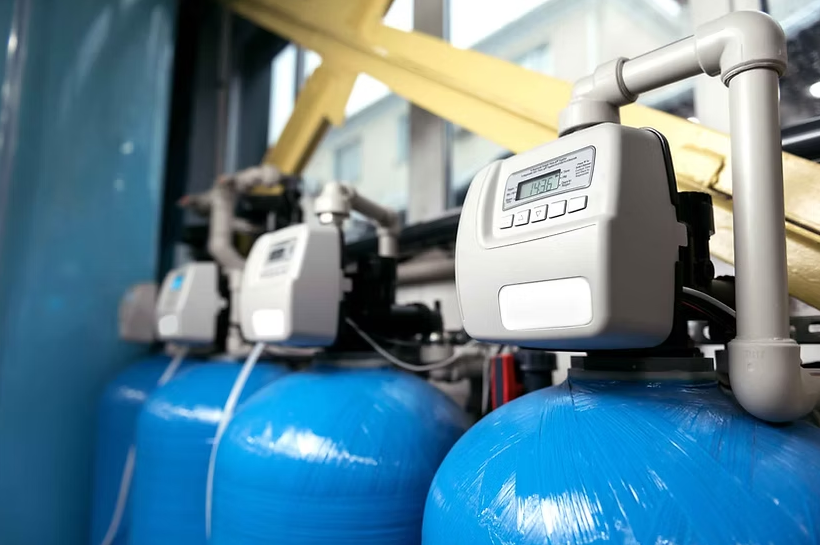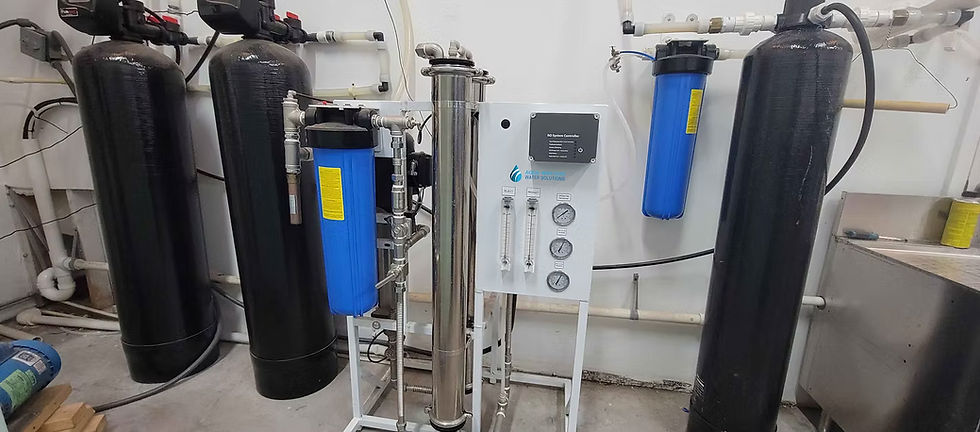What Is a Commercial Deionized Water Filtration System?
- Jack Wrytr
- Jul 24, 2025
- 4 min read

Industries that need water with the highest possible purity use deionized water to guarantee that they are operating efficiently, produce high-quality products, and comply with regulations. Through the removal of impurities and minerals, deionized water eliminates contamination. It also acts as a cooling agent for sensitive equipment, ensuring that the same experiments or tests are conducted consistently in industrial and commercial processes. In this guide, we will discuss everything you need to know about a commercial deionized water filtration system to make a well-informed decision.
Understanding Commercial Deionized Water Filtration System
Deionized water is specialized water that has been cleared of dissolved ions by a water treatment system, which is a specially designed solution that removes salts and minerals from the water and thus produces purer water. This process is essential for industries where the tiniest contaminants can affect the performance of the equipment, the product quality, or the reliability of testing.
The process of deionization is done by transferring water through the ion exchange resins that attract and exchange the ions with the same charge but of the opposite nature. Therefore, the ions of the impurities that are calcium, magnesium, and sodium are eliminated, and only ultrapure water is left. In comparison with other purification methods, deionized water systems are very efficient for getting water with very low conductivity and high purity.
For businesses that require the purest water for their operations, deionized water solutions are a must-have. Water of extremely high purity not only prevents equipment from scaling but also reduces energy consumption and problems in industrial and commercial applications.
Why Choose a Commercial Deionized Water Filtration System
Investing in a commercial deionized water filtration system offers a wide range of advantages to businesses, making it a vital solution for operations that need pure water. Here are some of its key benefits:
Increased Efficiency in Operations
Impure water or hard water leads rather quickly to scale buildup and expensive maintenance issues in various commercial settings, unfortunately. Commercial deionized water filtration systems help businesses extend equipment life significantly and boost operational efficiency pretty quickly over time.
Elimination of Pollutants and Toxicity
A deionized water filter system removes dissolved ions like calcium, magnesium, sodium, and chloride from the water, which makes it pure. This is definitely good, as it stops contamination and keeps the equipment safe, which is the cleanest, and thus gives consistent results of high quality. Also, you can use a commercial RO system in Tampa to remove contaminants in large amounts.
Environmentally Friendly and Affordable
Commercial deionized water systems are designed for productivity, which offers lower operational expenses and less water wastage. Businesses can save money over time and lessen their environmental impact by requiring less maintenance and repairing less equipment.
Designed for Maximum Efficiency
Deionized water systems have a super technology to provide continuous high-purity water to any place. In the laboratories, manufacturing, or other industries, our systems guarantee trustworthy performance designed according to your requirements.
Key Applications of Deionized Water
Deionized water plays an essential role across several industries for operational success. Here are some of its key applications:
Laboratory and Pharmaceutical Use
Safe water is vitally important for formulation processes in pharmaceutical production laboratories, and testing procedures require pure, clean water. Deionized water ensures regulatory compliance and accuracy of research results very effectively under various stringent laboratory settings nowadays.
Automobile and Aerospace Industries
Deionized water is used for battery maintenance, coolant systems, and surface treatments in these industries. These industrial deionized water systems guarantee equipment function and help stop corrosion.
Food and Beverage Manufacturing
Ensuring product stability remains utterly crucial in the food and beverage sectors nowadays under fairly stringent regulatory scrutiny, obviously. A commercial deionized water filtration system safeguards taste quality and adherence to various industry standards pretty thoroughly.
Electronics and Semiconductor Production
When making electrical components, water free of ions and minerals is necessary. Deionized water filter systems eliminate contamination, ensuring the accuracy and reliability of circuit boards and semiconductors.
For additional information, check out How to Select the Best Commercial RO Water Filter System for Your Tampa Business
Conclusion
Commercial deionized water filtration systems are still being researched to improve efficiency, reduce expenses, and enhance their effectiveness in various industrial applications. If you have any questions about commercial water treatment systems or would like to discuss the deionization process, please contact Aqua-Wise Solutions immediately.
FAQs
What are the different types of water treatment systems?
Water treatment systems for the home involve filtration, distillation, ultraviolet treatment, and water softener systems. Each system is designed to eliminate specific bacteria or pollutants. Get your water tested and select a system that will eliminate the harmful elements or microbes that have caused you the most problems.
What is the difference between RO and DI water systems?
RO systems are more efficient at getting rid of a bigger variety, such as dissolved salts, minerals, and particles of a larger size. In case you have soft-medium water (<100 to 250 TDS levels), just a DI unit is suitable for the work. DI systems are mainly concentrated on the elimination of ions from water and will also be good for cleaning windows.
What is the pH of DI water?
Distilled water, which has been hardly exposed to air and is very clean, will have a pH of only slightly below 7, generally 6.9. However, that does not mean that the distilled water is an acidic substance.



Comments